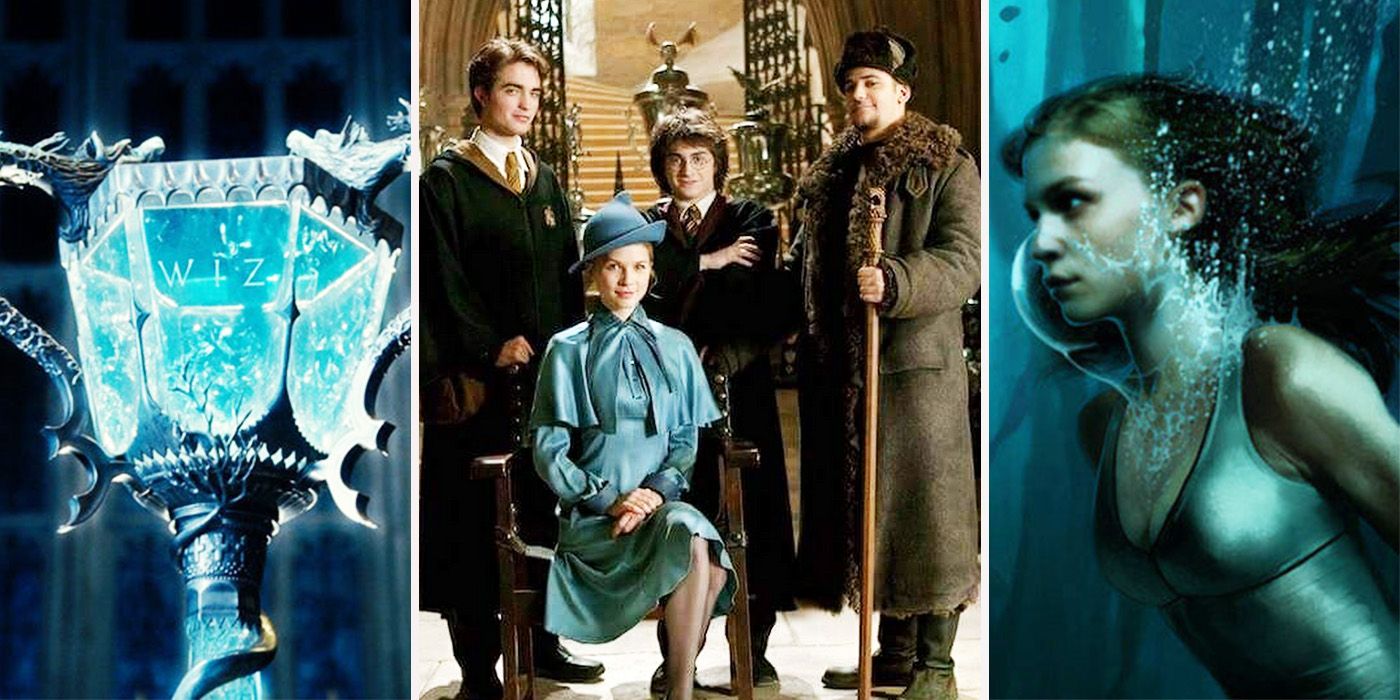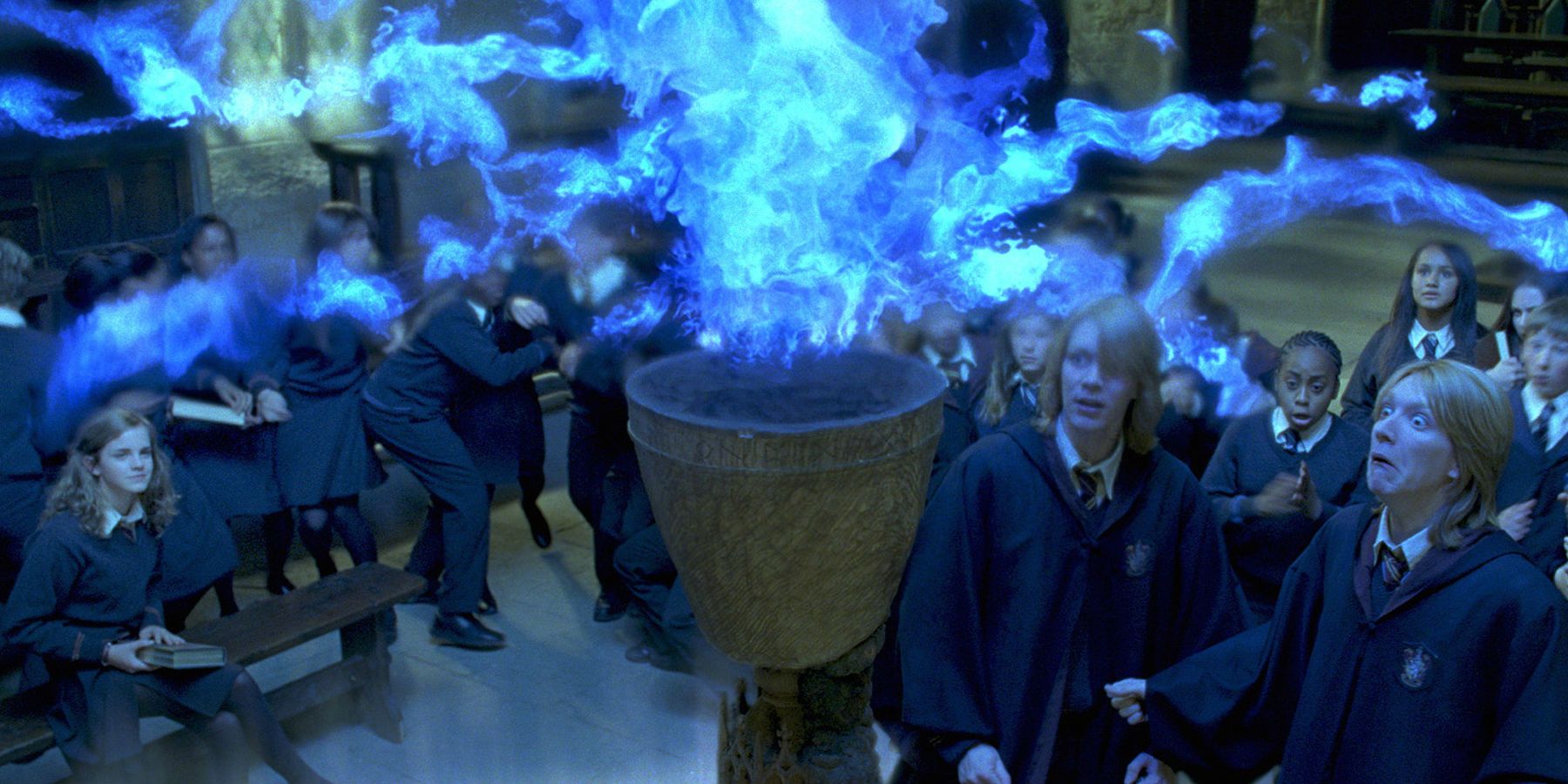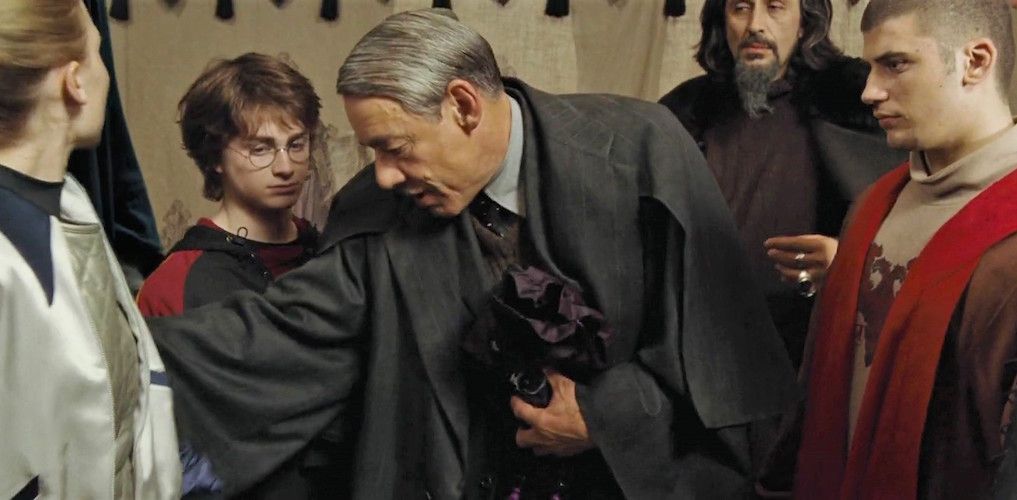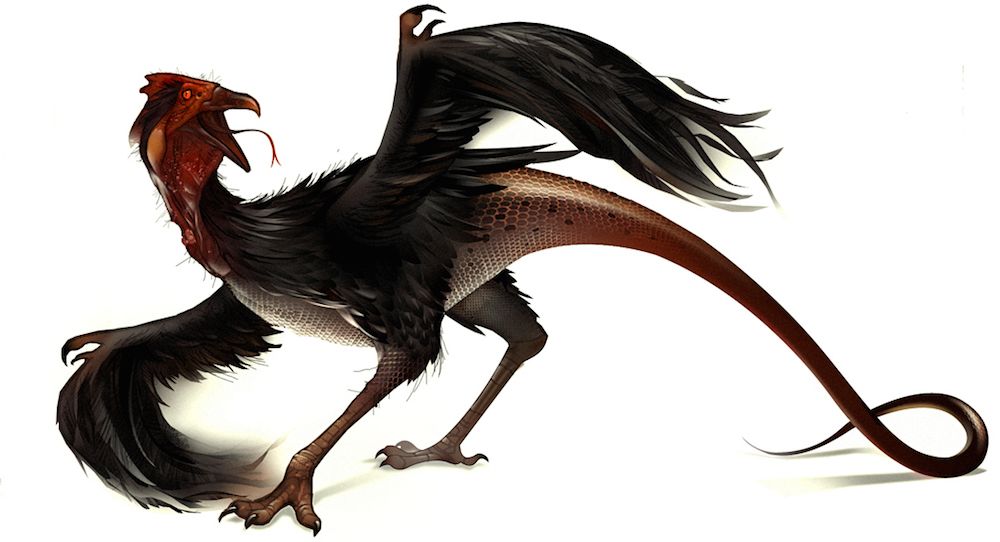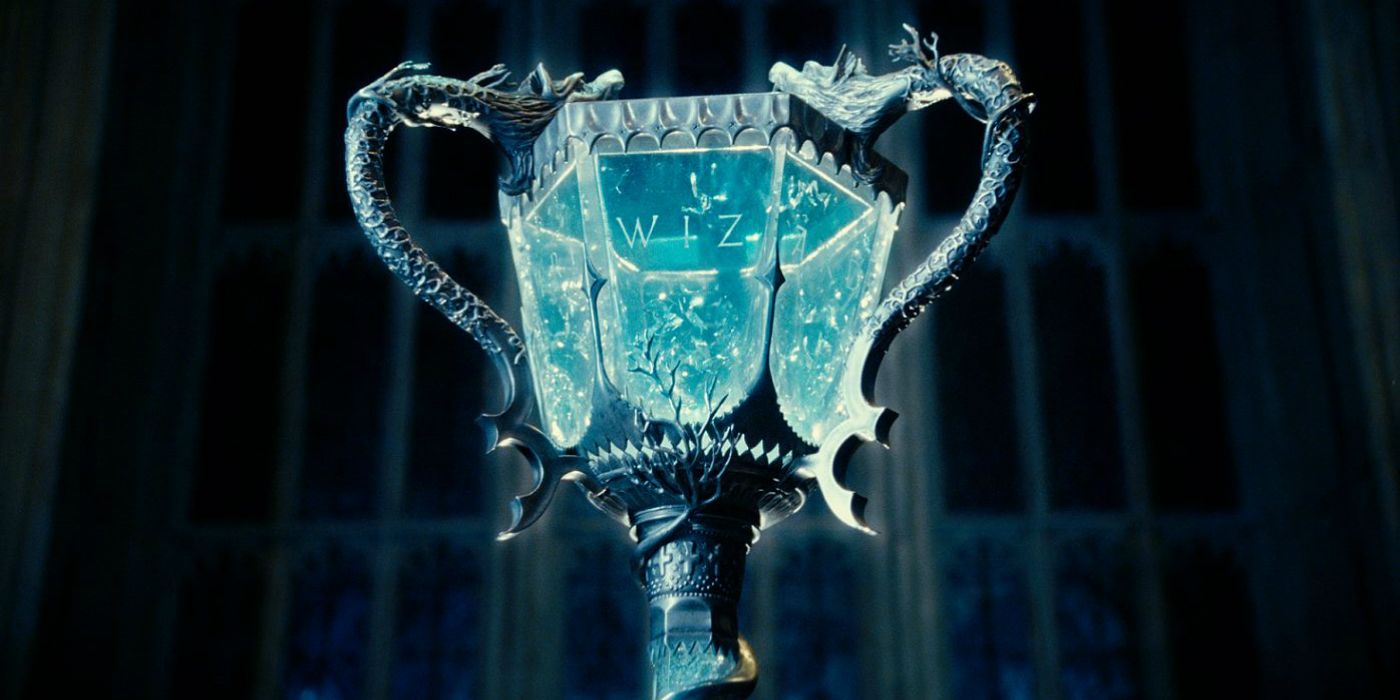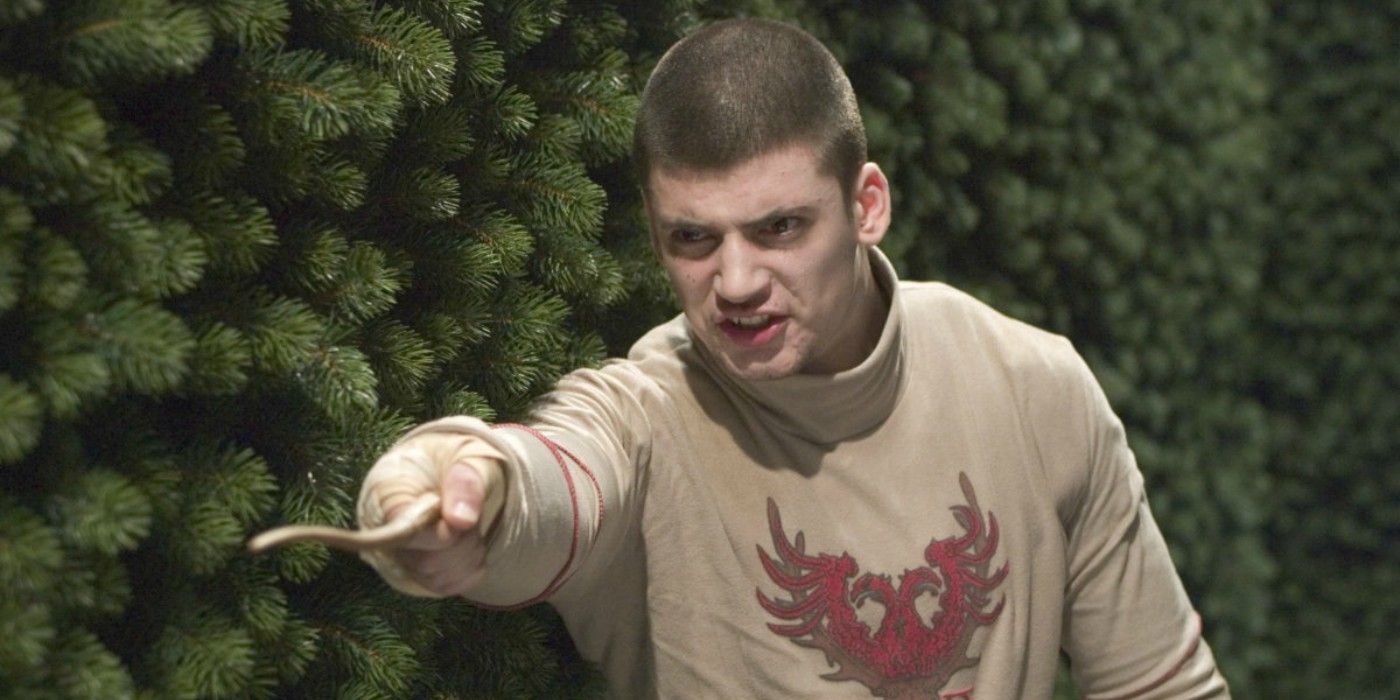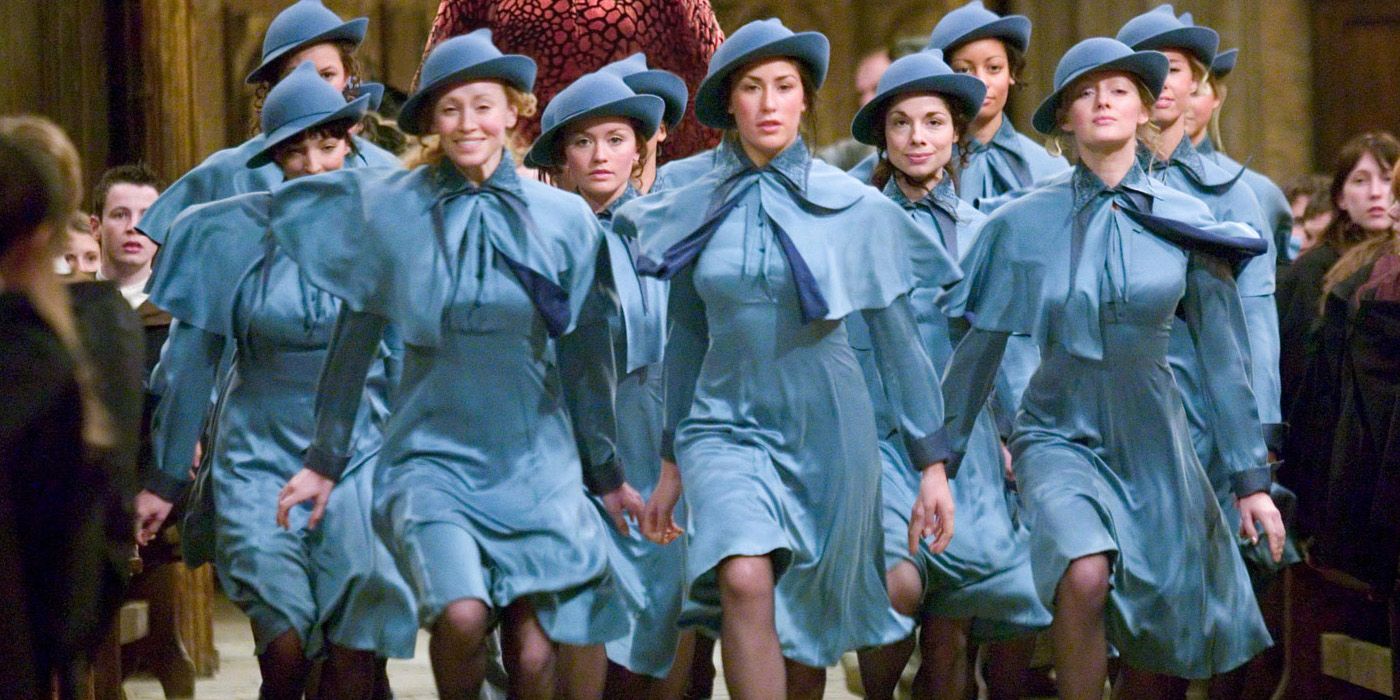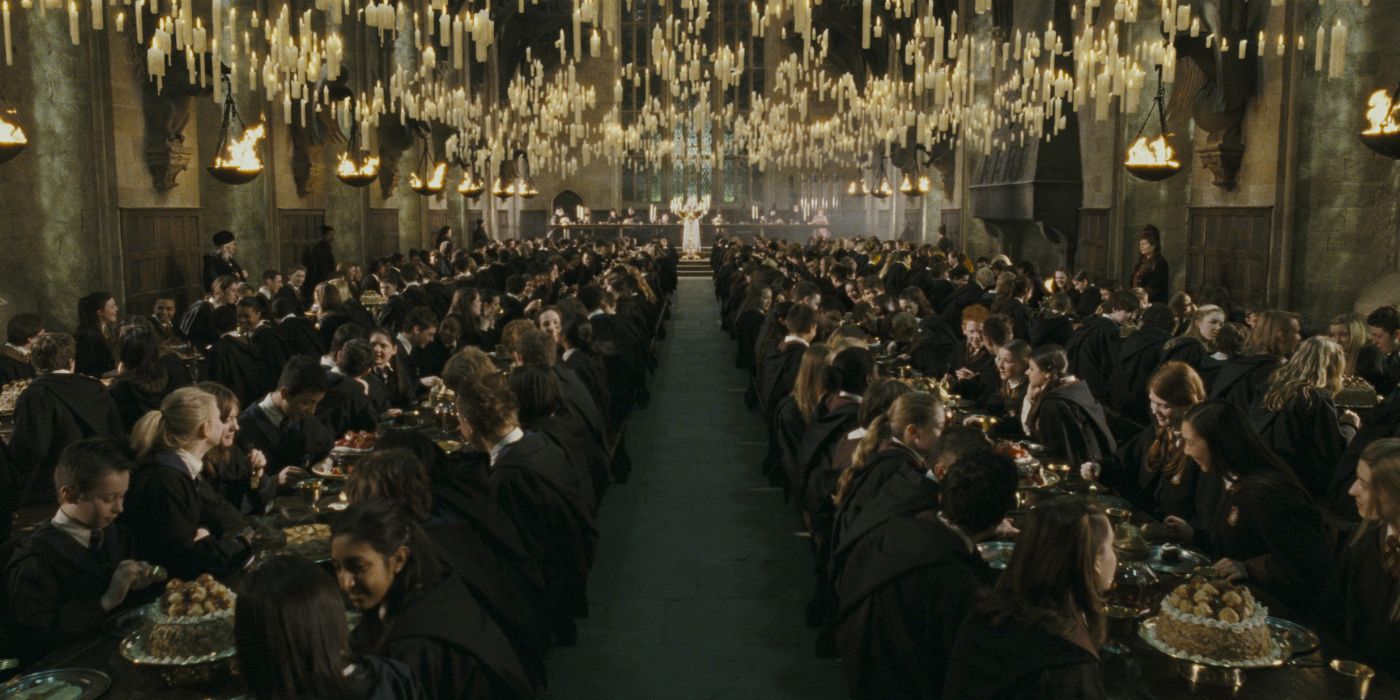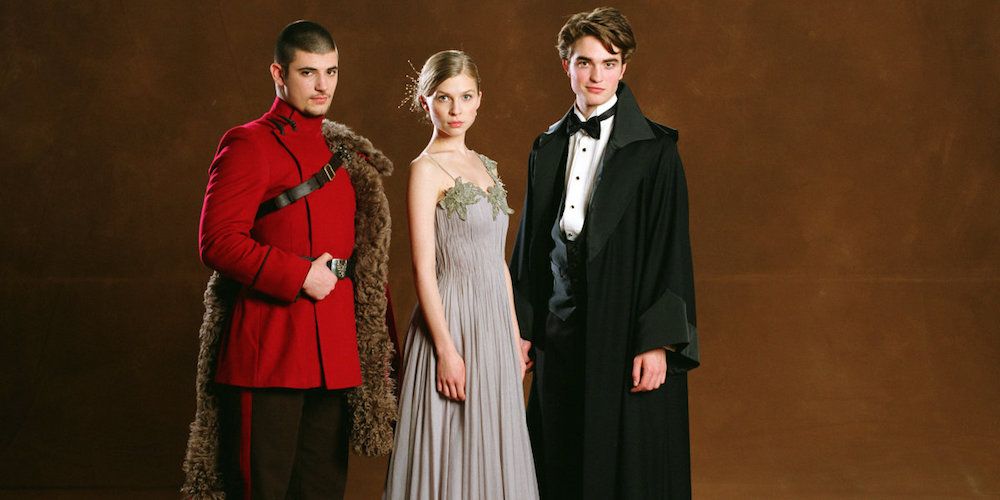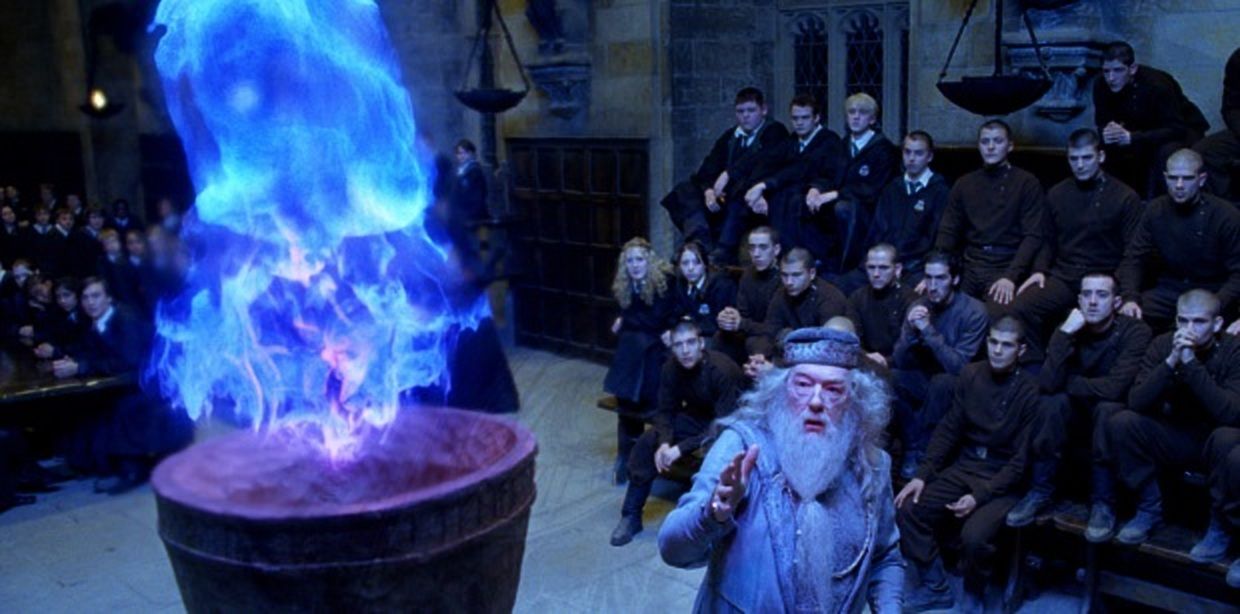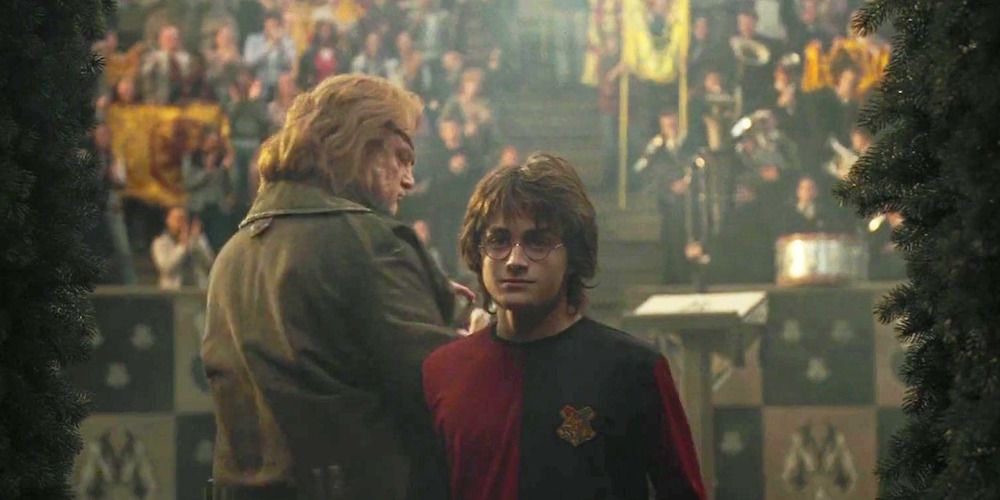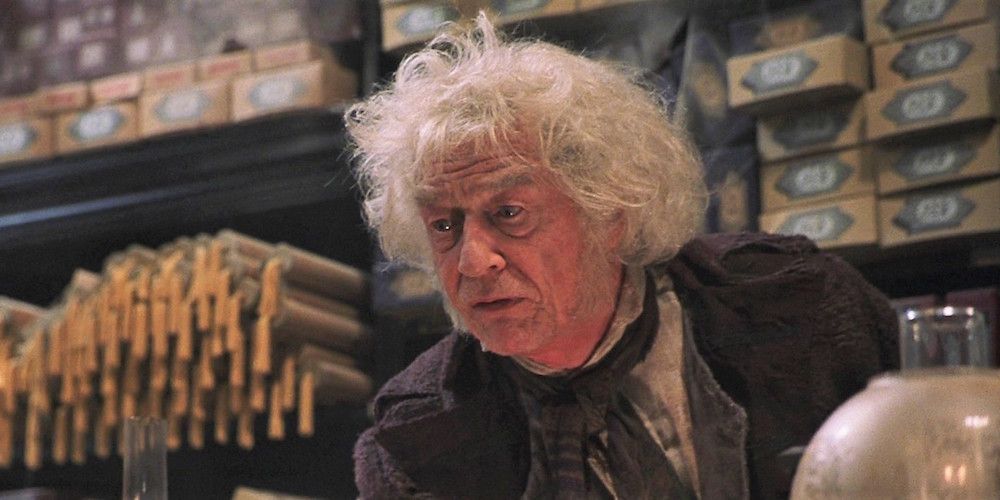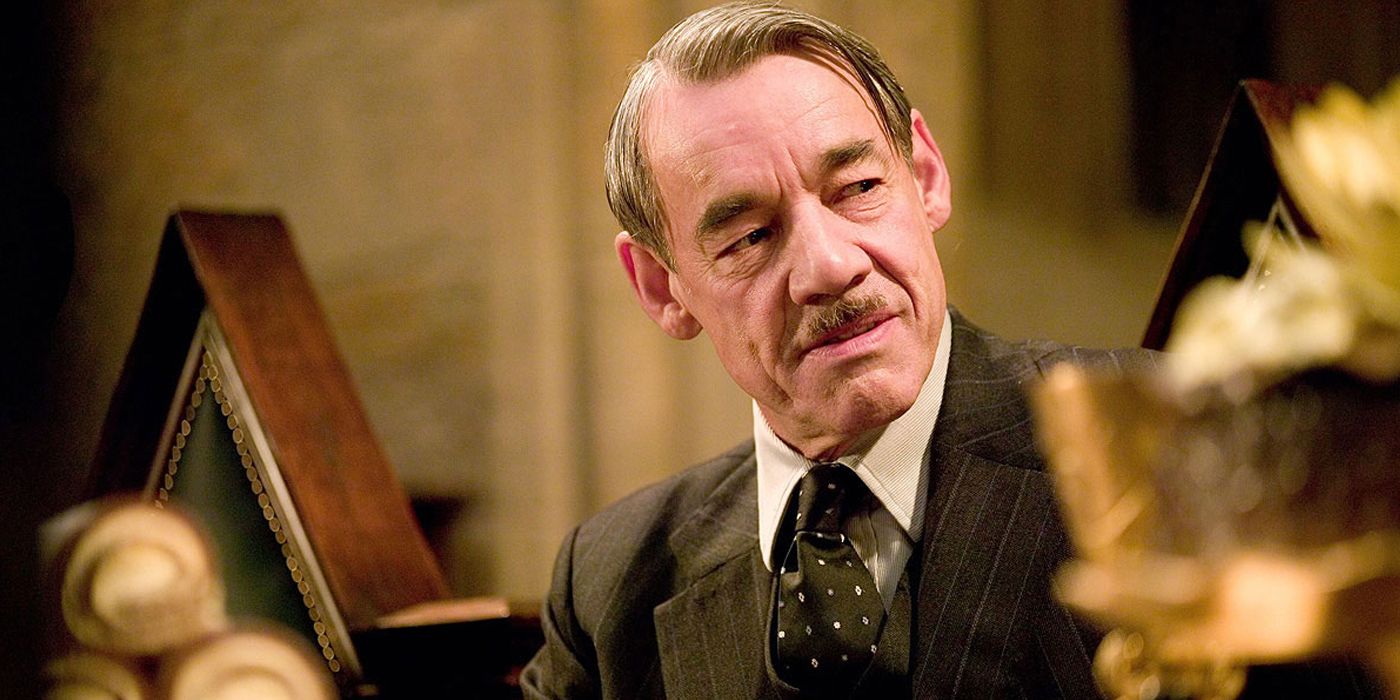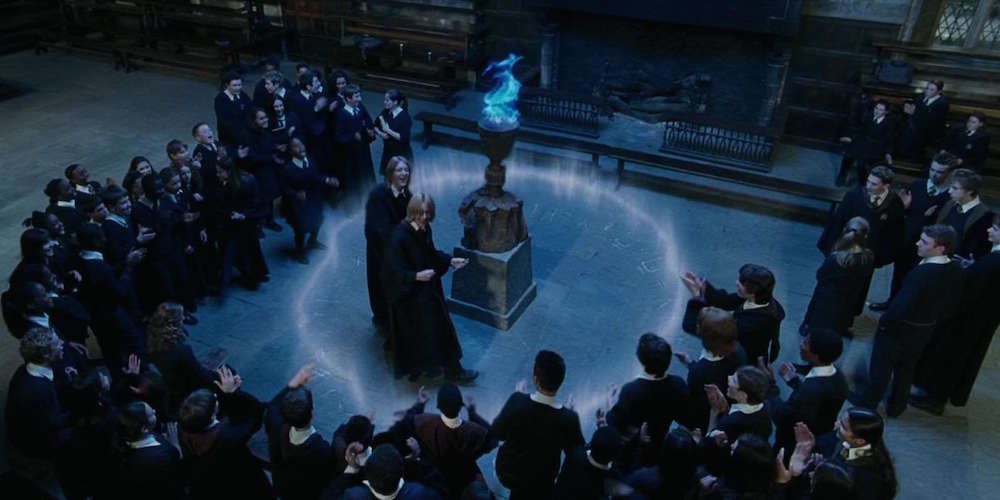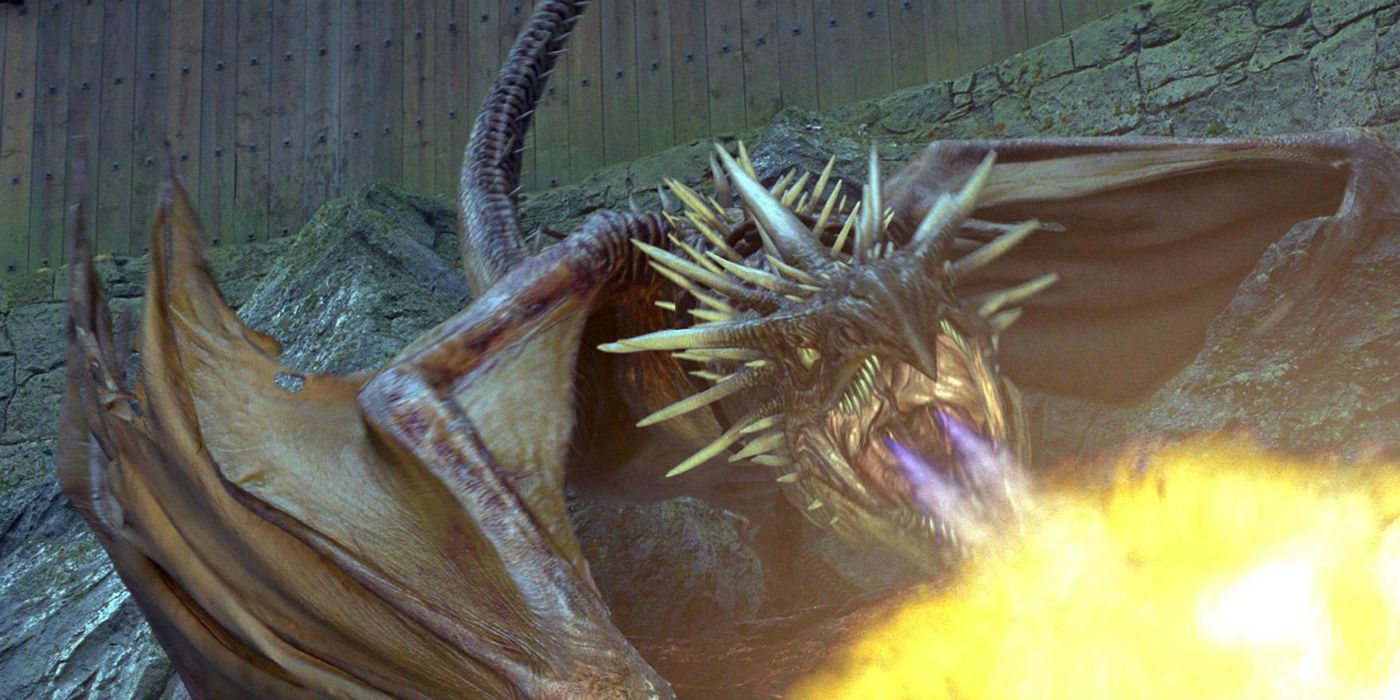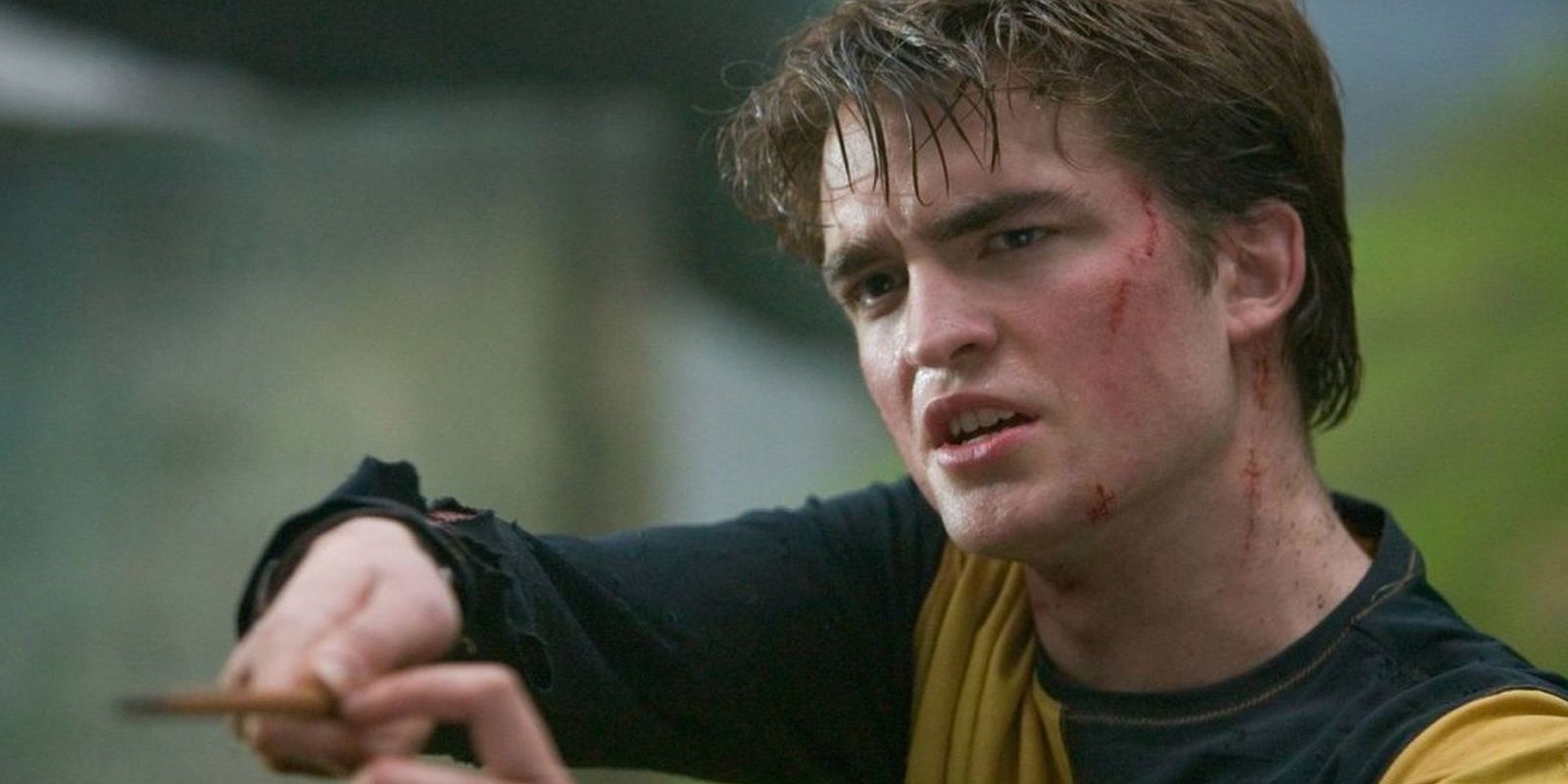Harry Potter is probably the most beloved series of books in existence. JK Rowling enchanted millions with her magical stories about a young wizard who tries to find his place in the world. She builds a world that readers can lose themselves in because they are so invested in the characters and the books' rich mythology.
Her stories would go on to capture the attention of filmgoers as well, as the popular series of books were translated beautifully to the big screen. As a result, fans got to see their favorite characters and plot lines come to life.
Among these major events was the Triwizard Tournament, which took place during Harry Potter and the Goblet of Fire. This inter-school competition was a fun, exciting, and sometimes heartbreaking competition to read about or watch unfold. Harry Potter and his fellow champions competed in dangerous events. They used their skills as wizards and witches to reason their way out of difficult situations. Harry ultimately won the Tournament, but not without a price.
Most people know about this side of the story, but not as many know the details behind this infamous competition. The tournament has a long history with plenty of ups and downs.
Here are 15 Things You Didn't Know About The Triwizard Tournament.
15. It's 700 years old
The Triwizard Tournament is the magical equivalent of the muggles' Olympics, so it only makes sense that these games would have a longlasting history behind it.
The tournament dates back to the late thirteenth century, roughly in the year 1294 — although the exact date isn't known. It began as a magical contest between three European based wizarding schools — Hogwarts School of Witchcraft and Wizardry, Beauxbatons Academy of Magic, and Durmstrang Institute.
Because these three schools are the biggest schools of magic in Europe, they have a lot of pull in the wizarding community. The Triwizard Tournament was created to foster connection and friendly competition between these schools, their staff and their students. This didn't come without bumps along the way, but the tournament was a big fixture in the wizarding world for centuries.
14. It was originally held every five years
People would never remember a competition like this one if it was a one-and-done thing. Imagine if the muggle Olympics took place only one time, and everyone decided that this was the end of it.
In order to be considered a true competition, a tournament like this one needs to be repeated. Not unlike the Olympics, the Triwizard Tournament evolved over time into an event that took place pretty frequently. Beginning centuries ago, this high-stakes competition was held every five years to see which wizarding school would "take home the gold."
Each Triwizard Tournament designates a new champion from Hogwarts, Beauxbatons, and Durmstrang to compete and represent their entire school.
Five years sounds like a long time to wait between games, but over time, that has added up to about 125 Triwizard Tournaments.
13. The attack in 1972
There is a little bit of a caveat with the "every five years" custom associated with the Triwizard Tournament. This competition ran like that for hundreds of years, without any major problems to speak of. However, an incident that took place during the 1792 competition suspended the Tournament for about 200 years.
During this particular competition, one of the tasks required that the champions catch a cockatrice; a creature that resembles a combination of a rooster with a lizard's tail. While that task may sound simple enough, the cockatrice broke free and reeked a lot of havoc. It attacked the heads of the three wizarding schools.
The infamous 1792 Tournament cancelled this inter-school competition for what seemed like indefinitely. People in the community made several unsuccessful attempts to revive the competition before the 1994 Tournament marked its return.
12. HIGH RISK, HIGH REWARD
For a competition that has lasted as long as the Triwizard Tournament, it makes sense that this event would have plenty of interesting customs and procedures associated with it.
In addition to being held every five years — until the 1792 Tournament, at least — it also gives champions the chance to earn more that just bragging rights.
The winner of the entire event earns "eternal glory" and plenty of notoriety, but there's also prize money involved.
1000 Galleons — the equivalent of more than 7,000 US dollars — is awarded to the champion who triumphs in the tasks.
The heads of Hogwarts, Beauxbatons, and Durmstrang serve as judges for the tasks to ensure that the input is somewhat fair and unbiased towards a champion.
The tournament is certainly high-risk for the champions, but it's also high-reward.
11. Durmstrang has never won the tournament
Many people are involved in the process of the Triwizard Tournament. At the same time, though, there are only three schools competing for glory and prize money. Considering the longevity of these wizarding games, it would make sense that the winner of the Triwizard Tournament would more or less rotate between the three schools. However, Durmstrang has never taken home the Triwizard cup.
A 125 tournament losing streak is pretty excessive.
Not much is known about why Durmstrang seems to fare so poorly in these games. Victor Krum, Durmstrang's 1994 Champion who faced off against Harry Potter, seemed to struggle during the tasks. That may be some indication. Whatever the case, it looks like Durmstrang will never be able to redeem itself. The 1994 Tournament marked the last competition.
10. Hogwarts has won the cup 63 times and Beauxbatons, 62 times
Although Durmstrang can't boast any Triwizard Tournament wins, Hogwarts and Beauxbatons never seemed to have that problem. In fact, the schools seem to be so equal when competing for the Triwizard Cup, the amount of wins is virtually the same. Over the course of the tournament's history, Hogwarts won the cup 63 times, and Beauxbatons falls just behind it with 62 wins.
It's also interesting to note that before the 1994 Tournament, the two schools were at a tie with wins.
This makes it somewhat unfair that the Tournament truly came to an end after both Harry Potter and Cedric Diggory won. Because there were two champions that year coming out of Hogwarts, that gave the school a fifty percent chance of winning.
This gave Hogwarts the slight edge it needed to ultimately best Beauxbatons — and Durmstrang — in the Triwizard Tournament.
9. The Tournament lasts the entire school year
Most sporting events or competitions lasts about a month — some even just days. For the wizarding world, though, the Triwizard Tournament lasts for the entire school year.
The three tasks are spread out over the course of several months. In the 1994 Tournament, hosted by Hogwarts, the first task took place in November, the second in February, and the third in June. The other two wizarding schools arrived on the Hogwarts grounds on October 30, and the Goblet of Fire determined the champions the next day — on Halloween.
This actually makes sense, given that the chosen champions are full-time students in the midst of their school work. It also gives them more time between tasks to prepare themselves for the competition. Because the two visiting schools remain at the host school for the whole school year as well, this helps build stronger relationships between the students.
8. There were always just three champions
We have the most information about the 1994 Triwizard Tournament because it's the one that Harry competed in. This competition is not the best example for understanding how the tournament works because there were four champions — Harry, Cedric Diggory, Victor Krum, and Fleur Delacour.
In reality, this tournament is the exception, not the standard. Never in the history of the tournament had there been a fourth competitor.
It's called "Triwizard" for a reason — the competition represents one student from each school competing.
The reason the Goblet of Fire chose Harry's name wasn't because he was deemed "worthy" of the honor like the other three champions. Barty Crouch, Jr. bewitched the Goblet to make it think there were four schools competing instead of three. Then he entered Harry's name under the fake school. This created a Triwizard Tournament with four people instead of three.
7. There's no going back once you're chosen
The Goblet of Fire is a magical entity and an impartial judge used to determine which students are deemed worthy of becoming champions. A student cannot change their mind about competing, though. If a student is chosen, they are contractually bound by magic to compete in the Triwizard Tournament.
When the Goblet of Fire spits out Harry's name, the tournament judges — including Dumbledore — expressed many of their concerns. The biggest problem is that the Goblet's selection is final, and Harry gets no say in whether he wants to compete.
The exact consequences for breaking this binding contract are not clear.
If it resembles anything like the Unbreakable Vow — a different magical, binding agreement — it makes sense why neither Harry nor the other staff members could do anything about it.
6. Cheating is actually very common during the tournament
On the surface, cheating is frowned upon because the champions are supposed to stand alone in completing their tasks. This includes consulting friends or teachers. However, cheating is actually a pretty big part of the tournament. Some people even consider cheating a tradition in the games.
Harry receives a lot of outside help when competing in the various Triwizard Tournament tasks. This is mostly because Barty Crouch, Jr. — disguised as Professor Moody — did everything in his power to make sure Harry won.
He's not the only one, though. Harry and Cedric share information about the first and second tasks. Madame Maxime from Beauxbatons nudges Fleur in the right direction after Hagrid shows her the dragons.
These are life-threatening tasks anyway, so a little extra help is probably welcomed by all champions. Besides, it's not really cheating if everyone is doing it, right?
5. The Weighing of the Wands
Before the champions jump into the arena to fend off dragons or chase cockatrices, it would be helpful to know that they have a fully-functional wand. After all, wands are known to break from time to time (we're looking at you, Ron Weasley).
Before the start of the first task, each competitor must submit their wands for testing in a ceremony called, the "Weighing of the Wands." This is a customary part of the Triwizard Tournament. Mr. Ollivander, the wandmaker who helped Harry select his Holly and Phoenix-feather wand, conducted the short ceremony. He examined each of the four wands for any physical damage. Then he tried casting a spell with each to make sure the wand could perform adequately.
Luckily for the champions, the wands all passed Ollivander's inspection.
4. Barty Crouch, Sr. lobbied to revive the tournament
The Triwizard Tournament was a staple in the wizarding community for a long time. After the events of the 1792 Triwizard Tournament, though, the competition ended for a while. This left its fate up in the year for two centuries.
Barty Crouch, Sr. wasn't the first person to try and revive it, but he was the most successful. As Head of the Department of International Coordination for the Ministry of Magic, Crouch reached out to officials in other countries to make the tournament happen. His job in the Ministry was to foster these kinds of connections. This made the Triwizard Tournament a perfect fit for him to spearhead.
He also worked closely with Ludo Bagman, Head of the Department of Magical Games and Sports, to help with regulation of the competition.
3. Extra precautions were put in place for the 1994 tournament
Part of the reason people in the wizarding community were hesitant to bring back the tournament at all was because the death toll got so high.
Given what happened in 1792, many weren't sure if the tournament was worth the risk.
When Barty Crouch, Sr. organized the 1994 Triwizard Tournament, he and those involved decided that they needed to take extra precautions this time to ensure that fewer students were at risk of harm. This included setting an age limit so no student under the age of seventeen would be allowed to compete. Before this point, people Harry's age were allowed to put their name in the Goblet of Fire. Some people, like Fred and George Weasley, tried to get around this rule.
Of course, these extra steps didn't stop tragedy from striking. They also didn't prevent Harry, a fourteen year old at the time, from competing.
2. The Muggle Prime Minister knew about the tournament
At the beginning of Harry Potter and the Half-Blood Prince, JK Rowling introduced readers to the Muggle Prime Minister. She reveals that Cornelius Fudge, the Minister for Magic, visited the Prime Minister several times throughout the course of the series. Each time, Fudge would update him on important magical events.
One of these updates included informing the Prime Minister that they planned to import several dragons from Romania to use in the Triwizard Tournament, which they used in the first task. They also brought in a Sphinx from Egypt, which they used in the third task.
Due to the risk these creatures could pose on the larger world, Fudge felt compelled to notify the Prime Minister. This means that the Prime Minister would know about the tournament.
1. Cedric Diggory's fate permanently ended the tournament
Barty Crouch, Sr. and everyone involved in reviving the tournament knew the risks that the tournament presented. So did the students who entered. As Dumbledore states, these are "Three extremely dangerous tasks." However, no amount of precautions could have prepared everyone for what the 1994 Tournament would bring.
Cedric Diggory's death hung like a shadow over the school. He was a worthy champion for Hogwarts — even more so than Harry, because the Goblet of Fire actually chose Cedric. Lord Voldemort's plan put the champions at an even greater risk. Ultimately, Cedric paid the price.
If the 1994 Tournament had not taken place, Cedric would probably be alive.
His death marked the end of the Triwizard Tournament for good, with no hope for another revival in the future.
---
Do you have any other Triwizard trivia to share from Harry Potter? Let us know in the comments

